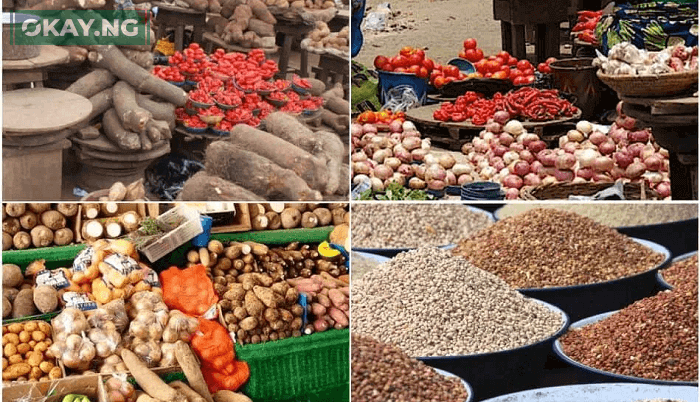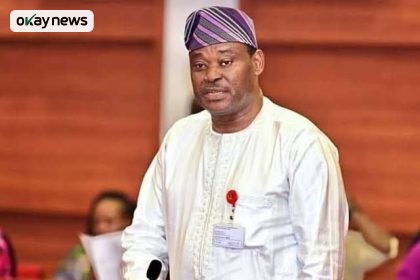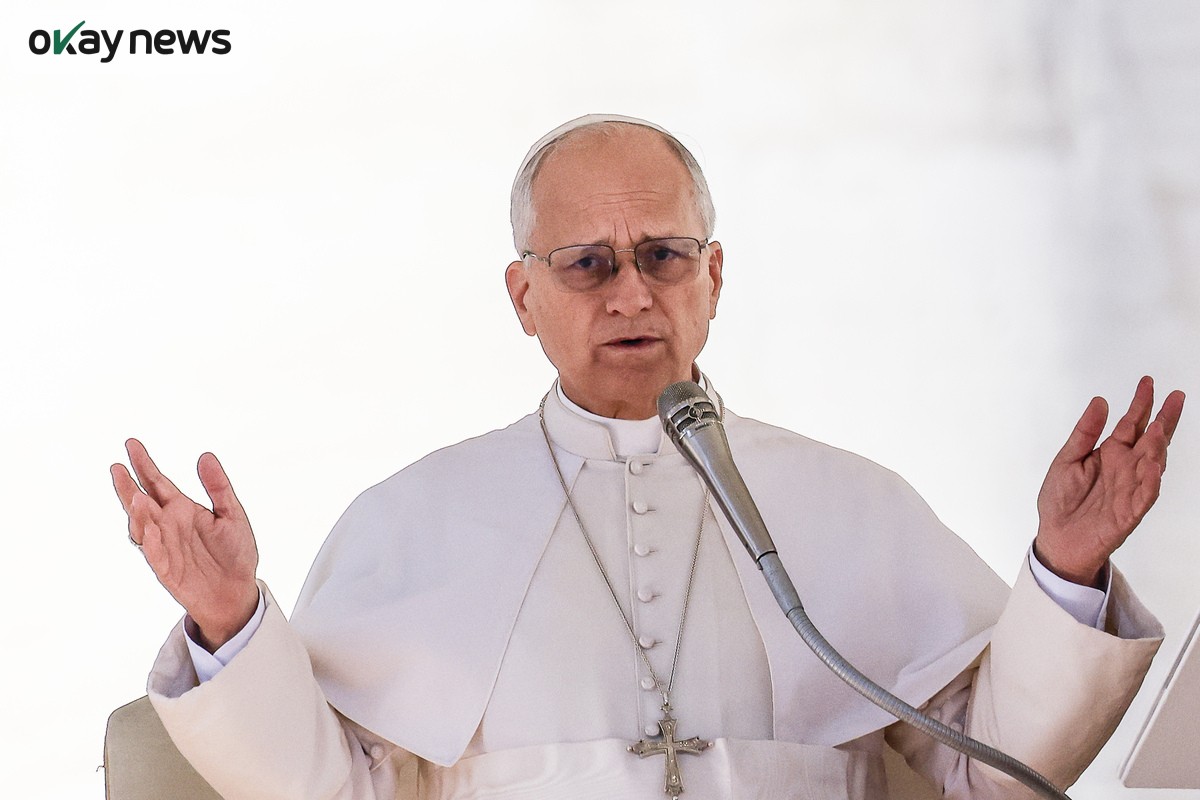Nigeria’s agricultural import bill hit ₦2.22 trillion in the first half of 2025, sparking outrage from farmers, rice millers, and industry experts who accused the Federal Government of undermining local production and worsening food insecurity through inconsistent policies.
The controversy deepened following President Bola Ahmed Tinubu’s directive that food prices be “crashed” nationwide. On September 11, 2025, the President reportedly ordered a Federal Executive Council committee to ensure prices of staple commodities were reduced across the country.
Government Position on Price Reduction
Minister of State for Agriculture and Food Security, Sabi Abdullahi, disclosed the directive while speaking in Abuja at a one-day capacity-building workshop for journalists covering the Senate. According to him, the government will facilitate the safe passage of agricultural commodities to ease logistics costs and reduce consumer prices.
“I can say it on good authority to you that the President has given a matching order to a Federal Executive Council committee already handling it. On how we are going to promote the safe passage of agricultural foods and commodities across our various routes in the country.
“We are aware, and I’m sure, as media, you are also aware, there are routes through which commodities are taken before they are delivered. If you know the amount of money that is being spent, you can now understand why those commodities have to be expensive at the point of delivery. So, we are working very hard, and we are doing quite a lot. But I’ve just given you a snippet because I’m here, and I felt we should look at that,” Abdullahi explained.
okay.ng reports that the pronouncement has drawn backlash from farming stakeholders who argue that government orders cannot override the realities of the market or make up for systemic inefficiencies.
Stakeholders Push Back
President of the All Farmers Association of Nigeria (AFAN), Kabir Ibrahim, dismissed the directive as insufficient.
“The cost of food will go down if transport costs go down, but that alone is not enough,” he stressed. “Our farmers are complaining that the prices are so low that they cannot buy fertiliser. The importation has dealt with our farmers.”
Similarly, the Chairman of the Competitive African Rice Forum, Peter Dama, faulted the government’s method, warning that unilateral orders could alienate investors.
“The President is dealing with private organisations and companies. You don’t just come out and give an order to crash prices. It doesn’t work that way. At best, the government should have called stakeholders in the transport and agric sectors, discussed with them, and provided subsidies. Pronouncements without engagement will not work,” he said.
Dama further cautioned that without subsidies and policy consistency, farmers could abandon agriculture entirely.
“If you don’t provide inputs and only make pronouncements, farmers will quit. We are not in an autocratic government. Stakeholders must be carried along,” he warned.
Mechanisation Stalemate
Beyond pricing, the government’s much-publicised mechanisation drive has also stalled. In July 2024, the administration launched 2,000 tractors to aid local farmers, but more than a year later, none have been distributed.
“The tractors have not been distributed yet. They were launched in July, but up to now, no modalities have been given. We need them to support human labour with machine power,” Ibrahim lamented.
A senior Ministry of Agriculture official, who requested anonymity, confirmed that the tractors’ distribution list is awaiting presidential approval. He added that a technical committee would soon be set up to address trade, finance, and customs-related bottlenecks.
Purchasing Power at the Core
While the Federal Government insists its policies will stabilise food prices, stakeholders argue that weak purchasing power of the naira remains the biggest challenge.
“What we are telling the government is that it is the purchasing power of the Naira that is causing problems. Even if food prices fall, people don’t have the money to buy. That’s why you are not seeing any impact,” Ibrahim stated.
His concerns were echoed by other groups who said Nigerians’ inability to afford basic food items was worsening hunger, regardless of supply levels.
Import Data and Duty-Free Policy Fallout
Data from the National Bureau of Statistics (NBS) showed agricultural imports climbed from ₦1.04 trillion in Q1 2025 to ₦1.18 trillion in Q2 2025, representing a 32.6% year-on-year increase compared with Q2 2024.
The surge followed the government’s 180-day duty-free import window introduced in July 2024, which allowed firms to import rice, maize, wheat, beans, and millet without paying tariffs. Though the policy ended in December 2024, stakeholders argue it worsened Nigeria’s reliance on foreign food.
AFAN’s Ibrahim argued, “There must be a rise in imports because there was a 180-day duty-free window. People rushed to import food, but Nigerians have no money to buy it. Even though prices are going down, purchasing power is low, and that is the reality.”
The glut has left government silos and private warehouses overflowing with unsold stock. Ibrahim noted that maize prices crashed from ₦60,000 per tonne to ₦30,000, leaving farmers unable to afford fertiliser or recover investments.
Women Farmers Raise Alarm
Chinasa Asonye, National Secretary of the Small-Scale Women Farmers Organisation in Nigeria, lamented that poor-quality subsidised inputs and hoarding practices worsened the food crisis.
“Fertilisers and herbicides have become unaffordable. Some of the subsidised inputs distributed were expired and caused more harm than good. Government must subsidise inputs so farmers can produce at a reasonable cost,” she said.
Asonye further disclosed that grains hoarded by traders and government agencies are now being sold at losses, with some imported rice already infested with weevils.
“Some people stored grains in silos expecting to sell when prices rise, but the reverse happened. Grains bought at ₦140 per kg now sell for ₦70. Worse still, some imported rice sold at ₦48,000 has weevils and is not even edible,” she revealed.
Experts Call for Holistic Action
Stakeholders are unanimous that piecemeal interventions such as duty-free imports, directives to crash prices, or delayed mechanisation will not solve Nigeria’s food crisis.
“Yes, reducing transport costs will bring some relief,” Dama admitted. “But the government must also engage rice millers, farmers, and private investors. Import licences should not replace real investment in local production. If we continue like this, we will never be food-secure.”
Asonye added that smallholder farmers, especially women, faced the greatest risks. “If farmers cannot break even, they will abandon production or resort to strike actions. That will deepen the food crisis.”
With imports soaring and local producers under strain, experts warn that Nigeria’s long-term food security hangs in the balance unless subsidies, infrastructure, and meaningful stakeholder engagement are prioritised.







